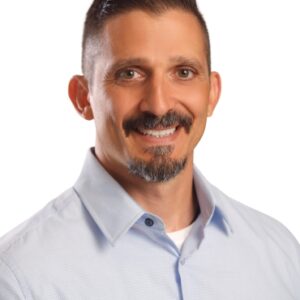Across New York State, thousands of graduating high school seniors will soon begin preparing for the next chapter of their lives as incoming members of the college class of 2023. They enter a higher education system that has been shaken to its core.
Like peeling the layers of an onion, Los Angeles federal prosecutors in May announced criminal charges against a new set of parents for college admissions fraud. This is in addition to the 33 parents who were charged in March for participating in a multimillion-dollar bribery scheme run by a Southern California–based consultant.
The origins of this ethical dilemma in college admissions have been evident for some time—they just weren’t apparent to everyone. Thanks to a few entitled celebrities and “Entertainment Tonight,” it’s on the forefront of everyone’s mind now. For colleges and universities, this is more than just a crisis of confidence, it’s a case for better managing risk.
According to Moody’s, at least 25 percent of private colleges are now running deficits. Even in a good economy, public college expenses generally outpace tuition revenue. And, to make matters worse, demographics are beginning to work against traditional colleges and universities. The pool of 18-year-olds in the Northeast continues to decline. Education Dive reports that 20 nonprofit public and private colleges closed from 2016–17 to 2017–18.
For many institutions, this is an unsustainable business model as they struggle to bring in enough revenue from a mixture of tuition, government funding, endowment returns and donations. Reduced revenues give rise to staff consolidations and staff reductions. Less training happens. Less process is followed. Less oversight occurs. Yet, the pressure to raise money and fulfill enrollment quotas remains. This is where the crisis of confidence begins, and risk escalates.
As evidenced by the recent scandal, well-endowed private schools are not immune to having compromised admissions standards either. Their involvement perpetuates a related ethical dilemma—that elite colleges favor the elite. A recent USA Today/Suffolk University poll found that by more than three to one, those surveyed say college admissions favor the wealthy and well-connected in an unfair way. Fewer than one in five Americans say the admissions process is generally fair.
Colleges and universities have been known to give preference to legacy students. In these challenging times, it is difficult for an institution to say no to a seven-figure gift, even if it is tied to the unspoken promise of an education for the offspring of the philanthropist. Colleges and universities, historically revered, have become a target of public disillusionment over decisions made with finances in mind.
Should we just accept this denigrated image of higher education? Most colleges and universities would say that their admission policies are fair, and that their approval processes are strictly adhered to. Now that the lurid details of the current admissions scandal have made it to grocery aisle tabloids, a skeptical public says otherwise.
To establish greater integrity in higher education admissions, institutions must recommit to managing risk in four keys areas: better process, adherence to training, heightened oversight and accountability, and enhanced transparency.
Better Process
Conducting an independent audit of current admissions policies and procedures that includes staff interviews can help identify opportunities to improve current processes and locate any gaps. Having a documented third-party review is also something credible that you can point to when prospective students, parents, the community and your board ask questions about your admission processes. Not only will this provide peace of mind, this is a good way to mitigate risk.
Adherence to Training
A recurring exercise to review training curriculum can assure that staff development tools are the most up-to-date. It is also important to review the training and continuing education credentials of staff, including new hires. Sometimes, between new hires, staff transfers and staffing reductions, training cycles are missed by critical employees. Also, are requirements for ethics training in place? Some institutions are moving to annual ethics certification for all employees.
Heightened Oversight and Accountability
Decisionmakers in the admissions and fund development offices should be required to complete conflict of interest (COI) statements. In addition, every higher education institution should have a whistleblower policy. Some institutions even have a hotline that encourages internal feedback.
Enhanced Transparency
Institutions should be completely up front about their efforts to reduce exposure to fraud in their admissions processes. Given the notoriety of the current scandals and the high-profile nature of the institutions involved, having responsible and ethical admissions practices is expected behavior. This activity should be documented on school websites, annual reports, board presentations, brochures and other marketing materials.
Regardless of what happens with the scandal, colleges and universities should see this as an opportunity to be proactive. To evaluate their risk and put the right controls in place so they can stand up and say, “This is what we do to maintain integrity in our admissions process.” That way, they’ll be able to answer the most important question before it is asked.
Jean Close is a partner in The Bonadio Group’s Healthcare/Tax Exempt Division, specializing in providing financial audit, benchmarking, finance and risk management consulting services to higher education institutions.
The Bonadio Group has offices in Albany, Buffalo, Rochester, Syracuse, Utica, New York City, Rutland, VT and Dallas, TX. For more information, visit www.bonadio.com.
This material has been prepared for general, informational purposes only and is not intended to provide, and should not be relied on for, tax, legal or accounting advice. Should you require any such advice, please contact us directly. The information contained herein does not create, and your review or use of the information does not constitute, an accountant-client relationship.



